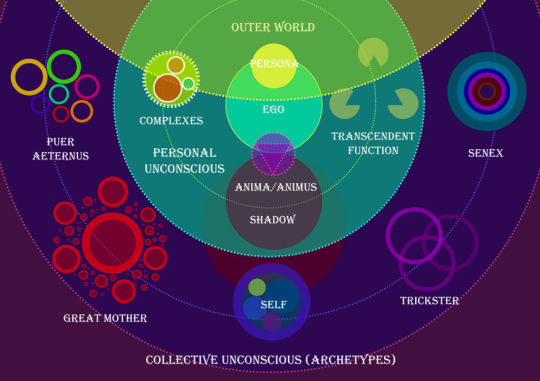Text
How to Acquire High Moral Standards & Noble Manners: Allamah Tabatabai (r)
Man acquires good morals and removes evil traits by repeatedly doing good – and relevant – deeds, and through their continuous observance. Repeated and continuous performance of an action etches its particular knowledge on the psyche. Gradually, a picture is engraved on the mind which becomes impossible – or extremely difficult – to erase. Habits become second nature.
For example, if a man wants to remove the trait of cowardice and acquire that of bravery, he should repeatedly plunge himself into difficulties and dangers. Whenever he would rush into a perilous and hazardous situation and finds himself coming out unscathed, he would acquire the taste of boldness and courage and would understand the ignominy of flight, of taking to one’s heels. Every such bold step would leave its mark on his psyche and ultimately bravery and courage would become an integral part of his character. Man has no power to acquire such traits by his own will, yet it may be counted as within his power inasmuch as its preliminary steps – those repeatedly performed deeds – emanate from his will and power.
There are two universally recognized systems to acquire high moral standards and noble manners.
First System: Many people base their moral science on good worldly foundations, that is, the knowledge, ideas, and ideals which are thought praiseworthy and laudable in the society. They acquire a good trait because it is commendable in the eyes of the people. Chastity, contentedness with what is in one’s hand and not looking at what others have – all these virtues create respect and honor in the people’s eyes, and one’s standing is enhanced in public. Avarice results in poverty and privation. Greed destroys one’s prestige. Knowledge attracts people and bestows respect and dignity in the eyes of elite; it opens the eyes of the knowledgeable person and protects him from unpleasant things. Ignorance, on the other hand, is blindness. Knowledge protects you while riches need your protection. Bravery makes you stead-fast and saves you from fickleness; this in its turn makes people sing your praise – no matter whether you win or lose. Cowardliness and rashness both cause opposite effect. Justice gives peace of mind, and keep man alive even after his death inasmuch as his good name continues and his love pulsates in people’s hearts generation after generation. This is the well-known basis on which the moral science is founded. Ancients like Greek philosophers followed this very system.
The Qur’an does not endorse this system, because it depends on the like and the dislike of the public. It looks at what is good in the eyes of the people and what is bad – and accepts the former and rejects the latter. Even in a few verses where the Qur’an appears to use this method, it really refers to the next world’s reward or punishment. Ponder, for example, on the following verses:
and wherever you are, turn your faces towards it, so that people shall have no argument against you… (2:150).
Here Allah exhorts the Muslims to remain steadfast and firm, and for its reason, He says: “so that people shall have no argument against you.”
… and do not quarrel, for then you will be weak in hearts and your power will depart, and be patient… (8:46).
Allah tells the believers to be patient, as impatience and quarreling among themselves would weaken their hearts, dilute their power and embolden their enemy.
And whoever is patient and forgiving, that most surely is an act of great resolution(42:43).
Here Allah invites the believers to patience and forgiveness and explains its reason in terms of determination and resolution.
Second System: The second system is to keep in sight the other worldly goals. Allah has used it in many verses of the Qur’an:
Surely Allah has bought of the believers their persons and their properties for this, that they shall have the garden… (9:111)
… only the patient ones will be paid back their reward in full without measure. (39:10)
… surely it is the unjust that shall have a painful punish- ment. (14:22)
Allah is the Guardian of those who believe; He brings them out of the darkness into the light; and (as to) those who disbelieve, their guardians are the rebels, they take them out of the light into the darkness… (2:257)
There are many verses, on different subjects, which imply the same theme. We may add here another set of the verses. For example:
No misfortune befalls on the earth nor in your own souls, but it is in a book before We bring it into existence; surely that is easy to Allah (57:22).
This verse exhorts man not to feel any sorrow (or joy) on whatever misfortune (or good thing) comes to him; what has come to him could not be averted, and whatever has been lost could not be obtained, because all happenings occur by a firm Divine Decree which is unavoidable. Sorrow and joy both seem, in this background, meaningless – a believer should not indulge in these vain practices because he believes in Allah and knows that all affairs are in His hands.
Allah says: No affliction comes about but by Allah’s permission; and whoever believes in Allah, He guides aright his heart (64:11).
Such verses, like the earlier quoted ones, create high morals by pointing to the sublime goals of the next world. These other worldly goals are real, not imaginary, perfections. These verses reform the human character by fixing man’s attention to the real, already existing causes, like the Divine measure and decree, adoption of the Divine characteristics, and remembrance of the good names of Allah and His sublime attributes.
[Allamah Tabatabai ®, Tafsir al-Mizan]
27 notes
·
View notes
Text

Composed an answer to an interesting question that I received. Decided to drop it here, as well.
Question:
"For how long can a person love someone one sidedly? Isn't that unfair to them because the other person might never feel same for them? But to love is to love unexpectedly, without wanting anything in return, and it's not easy to fall out of it."
My Answer:
An actual lover and an actual love is not possible without an actual beloved. The prerequisite for the love of absolute perfection is the existence of the Absolutely Perfect Being.
~
Imam Khomeini.
Humans are essentially limited and imperfect; no limited object can consistently manifest perfection.
There is no doubt that true love entails unconditional giving. Love, when given unconditionally, is what renders it complete and perfect in its existence, devoid of any need for reciprocation or any sort of fulfillment. In the case of unrequited love, we attempt to fill a void, yearning for love to be returned, yet misplaced expectations from fallible beings often lead to sorrow. The more we practice unconditional love, the more accepting and content we become, contrasting with the fleeting nature of love that arises from attempting to fill our own internal void.
No matter how much one claims to practice unconditional love, the presence of unrequited love often engenders an inherent expectation of receiving love in return. This arises from the inherent imperfections of both the object of affection and the lover.
Overcoming the pain associated with unrequited love is hard to get rid of and requires time. One can replace the limited and imperfect object of affection with the perfect Beloved (God). Alternatively, one can ask God to inspire love for oneself within the heart of the person they are in love with. However, it raises questions as to whether it is just or fair for your soul to pray for imperfect love from a perfect being and whether it is truly worthwhile. After all, what is the value of love that is given only after asking for it?
0 notes
Text
“The Quranic revelation is the light which enables one to see. It is like the sun which casts light lavishly. Philosophical intelligence is the eye that sees this light and without this light one cannot see anything. If one closes one’s eyes, that is, if one pretends to pass by philosophical intelligence, this light itself will not be seen because there will not be any eyes to see it.”
— Mulla Sadra
34 notes
·
View notes
Text
jung visualized

persona: "a kind of mask, designed on the one hand to make a definite impression upon others, and on the other to conceal the true nature of the individual."
ego: organizer of our thoughts and intuitions, feelings, and sensations, and has access to memories which are not repressed. jung thought ego was kind of a complex too.
complex: a partially repressed, yet highly influential cluster of charged psychic material split off from, or at odds with, the conscious "I". this is almost like a secondary ego where we have next to no control unless we know a lot about psychology.
Adonis complex
Cassandra complex
Cinderella complex
Don Juan complex
Electra complex
Father complex
God complex
Hero complex
Icarus complex
Inferiority complex
Jocasta complex
Jonah complex
Laius complex
Madonna–whore complex
Martyr/Victim complex
Medusa complex
Messianic/Messiah complex
Napoleon complex
Oedipus complex
Ophelia complex
Peter pan complex
Phaedra complex
Phaeton complex
Savior complex
Superiority complex
Superman complex
anima/animus: when our ego formed, what has been repressed becomes this. for example ne dominance automatically represses si to inferior slot. originally in jung, former, unconscious masculine side of a woman while the latter unconscious feminine side of a man. 4th slot in beebe, dual-seeking in socionics.
transcendent function: a complex going to be very biased, ego is also going to be biased but with transcendent function we can synthesize conscious and unconscious ideas and images fairly. we can untangle complexes with it. this comes from wisdom and openness and personal development and self acceptance and individuation. you won't find this in mbti or socionics.
self: the center of the total personality, which includes consciousness, the unconscious, and the ego; the Self is both the whole and the center.
puer aeternus : In Jung's conception, the puer typically leads a "provisional life" due to the fear of being caught in a situation from which it might not be possible to escape. He or she covets independence and freedom, opposes boundaries and limits, and tends to find any restriction intolerable. this is how 3rd slot in mbti will behave, unless a ton of work spent towards it through the transcendent function.
trickster: shadow of puer aeternus. pretty much your loki function. why loki is an egoist? why loki acts like he is the best and smartest and invulnerable? because he has daddy issues. thor loved more than him or so he believes, he is not really odin's son anyways: so who the fuck needs odin or thor! not loki! so he acts like he doesn't care, he doesn't need love, he rebels, he acts like a dark puer aeternus. hides the pain and misleads by acting chaotic.
great mother / senex: basically good and bad parent.
diagram from here <- i would highly suggest you to visit this blog. you will find many other and interesting diagrams.
303 notes
·
View notes
Text
“We meet ourselves time and time again in a thousand disguises on the path of life.”
— Carl Jung
862 notes
·
View notes
Text
“People will do anything, no matter how absurd, in order to avoid facing their own souls. They will practice Indian yoga and all its exercises, observe a strict regimen of diet, learn the literature of the whole world—all because they cannot get on with themselves and have not the slightest faith that anything useful could ever come out of their own souls.”
— Carl Jung
1K notes
·
View notes